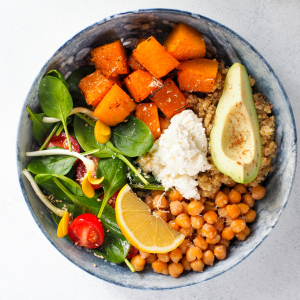A great day starts with a great morning. The way you spend your first hour after waking up sets the tone for your energy, mindset, and productivity. Successful people around the world often credit their achievements to consistent morning routine habits. By adopting a few simple yet powerful practices, you can boost your focus, improve your health, and feel more in control of your day.
Below are 10 morning routine habits that can transform your mornings and help you achieve success.
Table of Contents
10 Ways to Start Your Day Right
1. Wake Up Early and Consistently
Consistency is key to building better mornings. Waking up at the same time every day helps regulate your body clock, making you feel more energized and alert. Early mornings are also quieter, giving you extra time for focus and self-care before distractions begin.
Tips:
- Try to go to bed and wake up at the same time daily.
- Avoid hitting the snooze button to build discipline.

2. Hydrate Before Anything Else
After 7–8 hours of sleep, your body is naturally dehydrated. Drinking a glass of water in the morning helps jumpstart your metabolism, improves circulation, and wakes up your digestive system.
Tips:
- Keep a glass or bottle of water by your bedside.
- Add lemon for an extra vitamin C boost.
3. Practice Mindfulness or Meditation
Starting your day with mindfulness reduces stress and improves focus. Even 5–10 minutes of deep breathing, meditation, or gratitude practice can clear mental clutter and prepare you for the day.
Tips:
- Use a meditation app for guided sessions.
- Write down three things you’re grateful for.

4. Move Your Body
Morning exercise doesn’t have to be intense. A quick stretch, yoga session, or short walk releases endorphins, boosts energy, and improves concentration. Physical activity in the morning also builds consistency in your fitness routine.
Tips:
- Do light stretches as soon as you wake up.
- Try a 15-minute bodyweight workout if short on time.
5. Eat a Healthy Breakfast
Breakfast fuels your brain and body. Choose nutrient-rich foods that provide lasting energy instead of sugary snacks that cause crashes.
Examples:
- Oatmeal with fruits and nuts.
- Smoothies packed with greens and protein.
- Eggs with whole-grain toast and avocado.

6. Plan Your Day with Intention
Take a few minutes to outline your top three priorities. This prevents overwhelm and gives your day direction. A clear plan helps you avoid wasting time on unimportant tasks.
Tips:
- Use a planner or digital app.
- Write down a short to-do list instead of overloading yourself.
7. Limit Screen Time First Thing
Checking your phone immediately after waking up can overload your brain with notifications, emails, and social media. This creates stress before your day even begins.
Tips:
- Delay phone use for at least 30 minutes after waking.
- Replace scrolling with journaling, stretching, or reading.
8. Read or Listen to Something Inspiring
Feeding your mind with positive content in the morning sets an optimistic tone. Reading a few pages of a self-development book or listening to an uplifting podcast can inspire you throughout the day.
Ideas:
- Motivational books.
- Personal growth podcasts.
- Audiobooks on productivity or mindset.
9. Practice Positive Affirmations
Affirmations train your brain to focus on opportunities instead of obstacles. Speaking positive statements about yourself boosts confidence and resilience.
Examples:
- “I am capable of achieving great things today.”
- “I choose positivity and focus.”
- “Every day I grow stronger and wiser.”
10. Prepare the Night Before
A successful morning often starts the night before. Preparing small things in advance helps you wake up stress-free and focused.
Tips:
- Lay out your clothes.
- Prepare breakfast ingredients.
- Write down your priorities for the next day.
The best morning habit is the one that sets your mind and body up for success—but if I had to pick one universally effective habit, it would be:
What Is the Best Morning Habit?
If you could only choose one morning habit, start with drinking water first thing after waking up. Your body becomes dehydrated overnight, and rehydrating immediately helps kickstart your metabolism, improve brain function, and boost energy levels. It’s a simple yet powerful habit that sets the tone for a healthier, more productive day.
While hydration is a universal winner, the “best” morning habit also depends on your personal goals:
- For productivity: Planning your top priorities.
- For mental health: Practicing mindfulness or gratitude.
- For physical health: Morning exercise or stretching.
The key is consistency—choose one or two habits and make them a non-negotiable part of your daily routine.
What Is a Good Daily Habit?
A good daily habit is any small, consistent action that improves your health, mindset, or productivity over time. Unlike big life changes, daily habits are easy to maintain and create a lasting impact.
One of the best daily habits is practicing gratitude. Taking just a few minutes each day to reflect on what you’re thankful for helps reduce stress, boost happiness, and improve mental well-being.
Other powerful daily habits include:
- Regular exercise – keeps your body strong and energetic.
- Reading for 15–20 minutes sharpens your mind and builds knowledge.
- Journaling – clears mental clutter and tracks progress.
- Getting enough sleep restores your energy and focus.
- Mindful breaks – stepping away from screens to recharge.
The secret is to start small, stay consistent, and build on one habit at a time until it becomes part of your lifestyle.
How to Plan a Morning Routine
Designing a morning routine is about creating a structure that matches your goals, lifestyle, and energy levels. A well-planned routine helps you stay focused, reduce stress, and start your day with intention.
Steps to Plan Your Morning Routine:
- Define Your Goal – Decide what you want your mornings to do for you: more productivity, better health, or a calmer mindset.
- Pick 3–5 Core Habits – Choose simple, effective habits like drinking water, exercising, journaling, or planning your day.
- Set a Realistic Wake-Up Time – Make sure you get 7–8 hours of sleep so waking up early feels natural, not forced.
- Create a Sequence – Arrange your habits in a logical flow (e.g., water → exercise → shower → breakfast → plan).
- Start Small – Begin with one or two habits, then add more as they become automatic.
- Stay Consistent – Do it daily, even on weekends, to train your body and mind.
- Adjust as Needed – Review your routine after a week or two and tweak it until it feels natural and energizing.
How to Have a Positive Day
A positive day doesn’t happen by accident—it’s built on small, intentional choices that shape your mindset and energy. By starting with the right habits and keeping a grateful perspective, you can turn ordinary days into uplifting ones.
Tips for Having a Positive Day:
- Start with Gratitude – Write down three things you’re thankful for as soon as you wake up.
- Move Your Body – Even a short walk or stretch boosts your mood and energy.
- Fuel with Healthy Foods – Nutritious meals keep your body energized and your mind clear.
- Practice Positive Self-Talk – Replace negative thoughts with affirmations like, “I can handle today with confidence.”
- Limit Negativity – Reduce time spent on draining news or toxic conversations.
- Take Mindful Breaks – Step away from screens, breathe deeply, or meditate for a few minutes.
- Do Something Kind – Helping someone else boosts both their mood and yours.
- Reflect Before Bed – End the day by acknowledging your wins, no matter how small.
Remember: Positivity is a choice. The more you practice it, the more naturally it becomes part of your daily life.
What Is a Scientifically Perfect Morning Routine?
While there’s no one-size-fits-all, research in psychology, neuroscience, and health science suggests certain habits can optimize your body and mind in the morning. A “scientifically perfect” morning routine focuses on hydration, movement, mental clarity, and exposure to natural light.
Science-Backed Morning Routine Steps:
- Wake Up at the Same Time Daily – Consistent wake times regulate your circadian rhythm, improving energy and sleep quality.
- Get Natural Sunlight Within 30 Minutes – Exposure to sunlight boosts serotonin and sets your body clock for better sleep at night.
- Hydrate First Thing – Drinking water after waking supports metabolism and brain function.
- Move Your Body – Even 10–20 minutes of light exercise or stretching increases endorphins and focus.
- Practice Mindfulness – Meditation or deep breathing lowers cortisol (stress hormone) and improves emotional balance.
- Eat a Balanced Breakfast – A protein- and fiber-rich meal stabilizes blood sugar and supports concentration.
- Avoid Immediate Screen Time – Studies show that skipping early phone use reduces stress and boosts productivity.
- Plan Your Top Priorities – Writing down 2–3 key tasks activates your prefrontal cortex, helping you focus on what matters most.
What Is the 7-Second Morning Routine?
The 7-second morning routine is a quick and simple practice designed to shift your mindset as soon as you wake up. Instead of rushing into the day or grabbing your phone, you pause for just a few seconds to focus on gratitude and intention.
How It Works:
- As soon as you wake up, place your feet on the floor.
- Take a deep breath in and smile (yes, even if you don’t feel like it).
- Say a short positive affirmation or express gratitude, such as:
- “Today is a fresh start.”
- “I am grateful for this new day.”
- “I choose to be positive and focused.”
This tiny habit takes only 7 seconds, but it helps rewire your brain toward positivity and reduces the chance of starting your day stressed or distracted.
Why It Works:
Psychologists say that positive affirmations and gratitude first thing in the morning can lower cortisol (the stress hormone) and prime your brain for a more productive, optimistic day.
What Is the Most Healthy Morning Routine?
The most healthy morning routine is one that balances your body, mind, and energy levels. According to health experts, mornings should focus on hydration, movement, nutrition, and mental clarity. A healthy routine doesn’t need to be complicated—it just needs consistency.
Steps for the Healthiest Morning Routine:
- Wake Up at a Consistent Time – Regulates your body clock and improves sleep quality.
- Hydrate with Water – Replenishes fluids, supports digestion, and energizes your brain.
- Get Natural Sunlight – Boosts vitamin D and helps reset your circadian rhythm.
- Move Your Body – Stretching, yoga, or light exercise releases endorphins and improves circulation.
- Eat a Nutritious Breakfast – A protein- and fiber-rich meal keeps blood sugar stable and prevents energy crashes.
- Practice Mindfulness – Meditation, gratitude journaling, or deep breathing reduces stress and sharpens focus.
- Plan Your Day – Writing down top priorities helps you stay productive and intentional.
- Limit Early Screen Time – Avoiding phones and social media first thing reduces mental overload.
Key Insight:
The healthiest morning routine is simple, consistent, and customized. By combining hydration, movement, sunlight, and mindfulness, you create a foundation for long-term physical and mental well-being.
What Morning Habits Are Good for Memory and Focus?
If your goal is to boost mental clarity and stay sharp throughout the day, your morning routine can play a big role. Certain science-backed habits improve blood flow to the brain, reduce stress, and strengthen memory and concentration.
Morning Habits That Improve Memory and Focus:
- Hydrate First Thing – Water helps oxygen flow to the brain, improving alertness and cognitive performance.
- Get Natural Sunlight – Morning light regulates circadian rhythms and boosts serotonin, which supports learning and focus.
- Exercise or Stretch – Physical activity increases blood circulation, delivering more oxygen and nutrients to the brain.
- Eat a Brain-Boosting Breakfast – Foods rich in protein, omega-3s, and antioxidants (like eggs, nuts, and berries) enhance memory and attention span.
- Practice Mindfulness or Meditation – Just 5–10 minutes lowers stress and strengthens the prefrontal cortex (the part of the brain linked to decision-making and focus).
- Read or Learn Something New – Feeding your brain early stimulates memory formation and improves concentration.
- Plan Your Top 3 Priorities – Writing down goals reduces mental clutter and keeps your brain focused on what matters most.
How to Activate the Brain in the Morning
Waking up doesn’t automatically mean your brain is fully alert. To switch from groggy to focused mode, you need habits that stimulate blood flow, oxygen, and mental clarity. These simple steps can help you “turn on” your brain for a productive day.
Ways to Activate Your Brain in the Morning:
- Drink Water Immediately – Hydration improves circulation and supports brain function.
- Expose Yourself to Natural Light – Sunlight signals your brain to stop producing melatonin (the sleep hormone) and boosts alertness.
- Move Your Body – Stretching, yoga, or even a short walk increases oxygen and blood flow to the brain.
- Practice Deep Breathing – Oxygen-rich breathing calms the nervous system and enhances focus.
- Eat a Nutritious Breakfast – Protein, healthy fats, and fiber (like eggs, nuts, and oats) provide sustained mental energy.
- Challenge Your Mind – Reading, puzzles, or journaling stimulate memory and cognitive activity.
- Practice Mindfulness – Meditation clears mental fog and sharpens concentration.
What Habits Improve Brain Function?
Your brain thrives on consistency, healthy fuel, and mental stimulation. Building the right daily habits can improve memory, focus, creativity, and long-term cognitive health.
Habits That Improve Brain Function:
- Regular Exercise – Physical activity increases blood flow to the brain and promotes the growth of new brain cells.
- Balanced Diet – Foods rich in omega-3s, antioxidants, and vitamins (like salmon, blueberries, nuts, and leafy greens) support brain health.
- Quality Sleep – 7–8 hours of restful sleep strengthens memory and helps the brain process information.
- Hydration – Drinking enough water improves concentration and mental clarity.
- Continuous Learning – Reading, puzzles, or learning new skills stimulate neural connections and keep your brain sharp.
- Mindfulness & Meditation – Reduces stress, improves attention span, and strengthens emotional regulation.
- Social Connections – Meaningful conversations and relationships stimulate brain activity and protect against cognitive decline.
- Limiting Multitasking – Focusing on one task at a time improves memory and productivity.
- Brain-Training Activities – Games like chess, Sudoku, or memory exercises keep your mind flexible.
- Stress Management – Chronic stress harms memory and learning, so habits like journaling or relaxation are essential.
Daily Routine for a Healthy Body and Mind
- Wake up at the same time every day
- Drink a glass of water first thing in the morning
- Do 20–30 minutes of exercise, yoga, or stretching
- Eat a balanced, nutrient-rich breakfast
- Practice mindfulness (meditation, journaling, gratitude)
- Take short breaks from screens during work or study
- Read or learn something new daily
- Stay hydrated throughout the day
- Eat wholesome meals with plenty of fruits & vegetables
- Spend time outdoors or in natural light
- Connect with family or friends for emotional well-being
- Limit junk food, alcohol, and excess caffeine
- Practice positive self-talk or affirmations
- Prepare for the next day in the evening
- Get 7–8 hours of quality sleep
Final Thoughts
Morning routine habits don’t have to be complicated. By consistently practicing just a few of these ideas—waking up early, hydrating, moving your body, and setting intentions—you can transform your mornings into a powerful foundation for success.
Start small, stay consistent, and soon your mornings will become the most productive and inspiring part of your day.





One thought on “Morning Routine Habits: Best 10 Ways to Start Your Day Right”
Comments are closed.